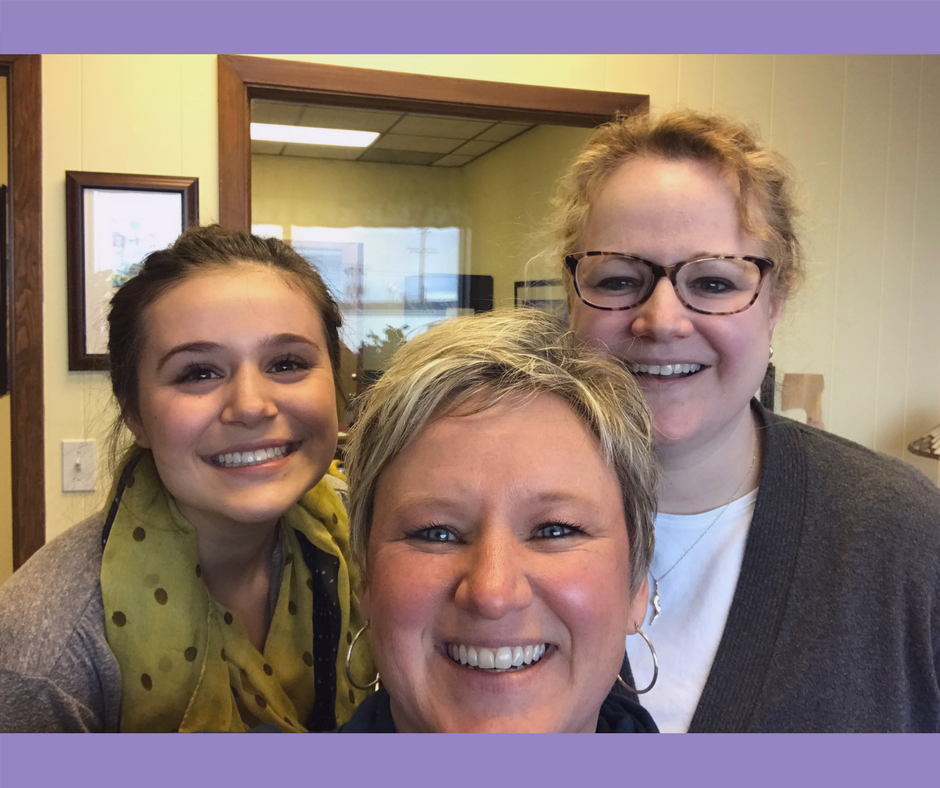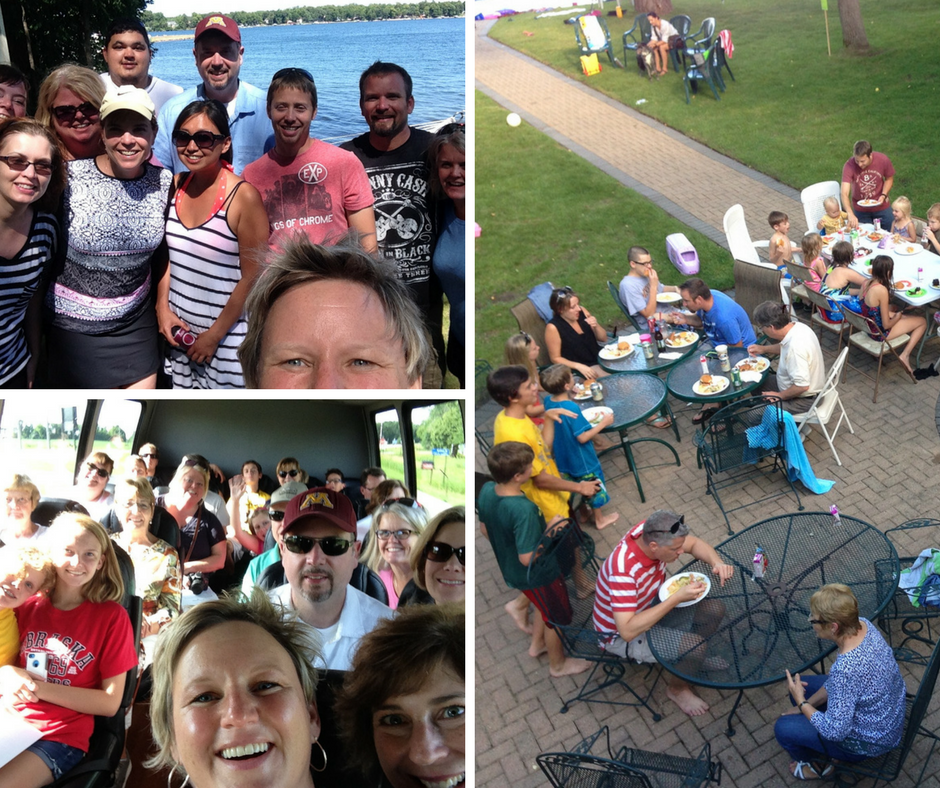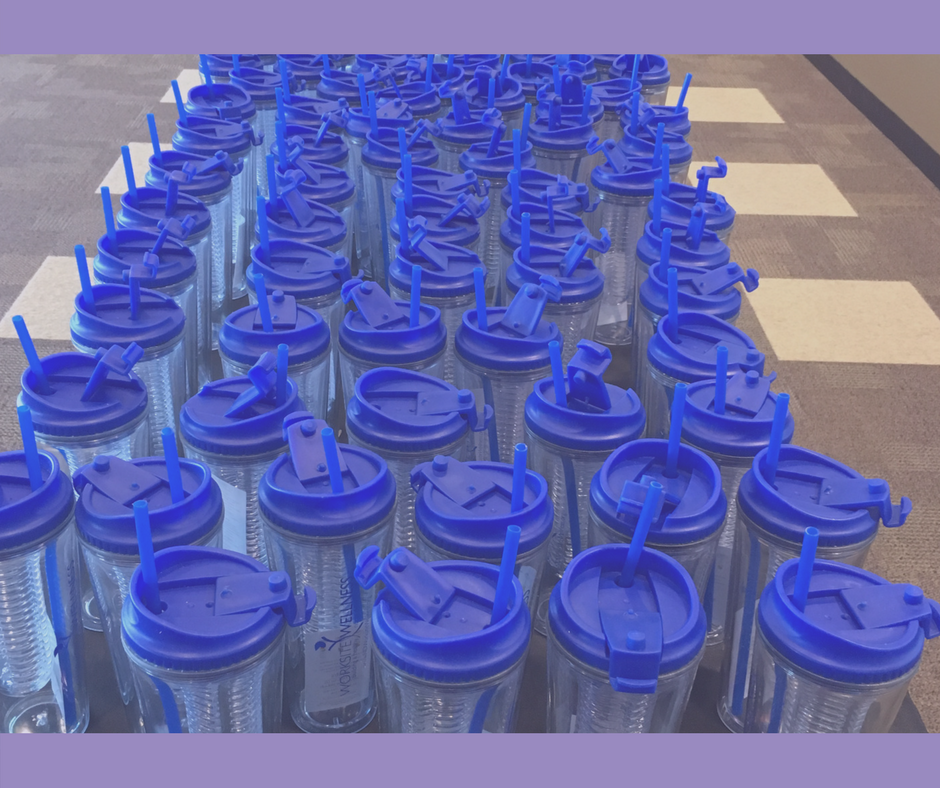|
It’s hard to believe that the time has come when I am approaching the end of my internship with Reach Partners and the end of my college career. I am very thankful for my time at Reach Partners in many ways. I have learned an abundance of new knowledge from Anita and Rachel, and this experience is one I will always have and be able to look back on as I start my career.
There were many lessons taught and learned during my time at Reach Partners that helped me learn not only about project management, but also about myself and what I want to do with my chosen career path. I learned the ins and outs of project management and got to witness first-hand the behind-the-scenes work that goes into planning and executing an event. Interning at Reach Partners has also taught me lessons that have helped me along in my job search. Because of skills learned during my internship, I am able to elaborate on this new set of skills on my resume and in interviews for full-time positions. During my time at Reach Partners, I sat in on committee planning meetings, drafted communication plans, and helped out during events that Reach Partners executed. It was a great experience for me to be able to see the different stages of the event planning process from committee discussions to the wrap-up. All of my experiences at Reach Partners have been very rewarding for me. The skills I have learned and developed during my months at Reach Partners will help me in my future career, whether it is planning staff events, creating communication plans, or even sitting in and coordinating meetings. This new set of skills will help me to feel confident in my abilities after graduation and as I start out in my career. —Olivia, Event Strategy Intern
0 Comments
Have you ever taken your car to the shop, knowing that the mechanic needs to order a part before the problem can be fixed?
Consider two scenarios. Scenario one: You leave your car at the shop on Monday. You don’t get a phone call that day or early the next. Finally, at noon on Tuesday you call the mechanic and find out the part was delayed. It arrived shortly before you called, and it will be another day before the work is done. Scenario two: You leave your car at the shop on Monday. Your mechanic calls a couple of hours later and explains the part is delayed. It will arrive on Tuesday, and the car will be ready on Wednesday. The outcomes are identical in both scenarios: you get your car back on Wednesday. Which one would you prefer? Which one treats you with more respect? It can feel awkward to communicate when there’s no action or forward movement on a project. After all, no news is good news, right? Not necessarily. At Reach Partners, we establish frequent touchpoints with our partners. These real-time conversations happen no matter what happens or doesn’t happen with a project. Progress made? We communicate. Problem uncovered? We communicate. Nothing happened? We communicate. Most of us pick up the phone or send an email when progress and problems happen. Doing the same when there’s nothing to report is just as critical. We don’t want our partners to waste energy wondering about the status of a project. We communicate with clarity and integrity, even when the news to share is a big, fat zilch. This keeps clients from assuming the best or the worst. It assures our clients that their project is important to us. It also makes it easier to connect when we have bad news to share, such as delays or blocks that might affect a project timeline. After all, nobody wants to get a call only when something isn’t going right. Think about it in these terms. If you’re selling your house, a weekly conversation with your Realtor makes you feel good. Even if there are weeks that nobody has looked at your home, you feel like things are moving in the right direction. You are confident that your house will sell. Communicating nonaction will do that. As the days grow warmer, our minds turn to one of those harbingers of summer: family reunions. As much fun as old-auntie kisses are, planning a family get-together is no walk in the park, even if the event is held in one.
Whether you’re in charge of a picnic for a few cousins or a week-long vacation with the entire clan, we have some tips to make the planning less daunting and the connections more fun. Write It Down Save yourself a headache, stress and maybe even some money: jot down what you know. It’s okay if all details aren’t planned. After all, we don’t need to know right away whether there will be a sack race for the kiddos at 2:30 p.m. or 3:30 p.m. on Thursday. Start with the basics. Break each day into meals and broad time slots: breakfast, morning (travel), lunch (on own), afternoon (family activities), dinner (potluck), evening (family photos). As you get closer to the event, you’ll likely have a couple of different written plans: one that you can share with the family when you send out the invitations; one that is more of a planning/resourcing document; a third that serves as a communications outline. Here’s an example of information you may want to track:
Create a Budget A budget determines what type of space you can rent for the event. (Even park shelters often have fees.) Food is always a cost. Create a “per person” budget so that Cousin Sam’s family of seven doesn’t pay the same as Grandma. Determine early on, too, how you will gather the money and who is responsible for tracking down those who haven’t paid yet. Gather the Addresses Ask for both email and snail mail addresses. While most people communicate via email, remember great-aunt Maggie may not. Use something like Google sheets so you can easily share updates with the group (and EVERYONE can update their Christmas lists). Ask family members to update their own contact information and to pass along to anybody who might not be on your contact list. List families by household and double-check that cousin Sally isn’t listed twice – at her childhood home and her new SoHo flat. Venue and Accommodations Your venues and accommodations largely will be determined by your budget, but you should also think about your audience. Special accommodations may be needed if there are babies, toddlers, or family members who are visually impaired or use a wheelchair. Check out the site prior to the event. Will it accommodate the whole group if it rains? Is there a severe weather shelter nearby? Does the site have everything you need: electricity, tables, chairs, projector or screen, full kitchen, stocked bathrooms? Nothing’s worse than expecting 125 people and realizing you were supposed to bring your own TP. If you opt for a hotel, ask for a discount rate for room nights. Even if your plan is as simple as setting up tents on Uncle Bruce’s lawn, ask questions. Is there a septic system that people should avoid driving over? Invitations In your first announcement, be sure to provide the basics: dates, location (include the address!), accommodations, and any upfront fees or shared costs. As the event gets closer, update attendees with details about activities and what everyone needs to bring. Swimsuits? A dish for sharing? Additional cash for the latest edition of the family genealogy book or a regional tour? Your last communication prior to the event should contain the schedule of events. It will include a simple layout of the hours and day/s and where activities will be held. This schedule is a kindness for all involved. Keep messages simple and avoid long-winded updates about Aunt Lena’s gout flair-up or the not-so-recent discovery of great-grandpa’s third wife Anna’s missing china in Aunt Mildred’s collection. Tips: Suggest a family hashtag so you can aggregate images on social media during and after the event. Also keep each email heading similar so people can find it easily, e.g. Jaaten Larson Reunion: Accommodations and Jaaten Larson Family Reunion: Graveyard Tour. Activities Activities are a great way to encourage interaction among family members who don’t know each other well. Assign teams (mix by ages and families) to play yard Olympics: bag toss, ladder golf, bocce ball, Klub, washer toss. Create clues for a medallion hunt. If it’s a large group, use nametags. You all may be related, but that doesn’t necessarily mean everybody knows each other. (And think about it: the young ones in your group think anyone over 25 looks the same.) Color coordinate nametags for each branch of the family tree. Bonus points if you can get everyone to wear a nametag every single day. Roles and Jobs You don’t have to do this alone even if you are a prized control freak. Outline jobs for others to take on. Give family members a chance to choose how they want to help. If you are specifically asking people, don’t ask one person to do all the like activities, such as kitchen clean-up, recycling, photography. Ask Sandy to take photos in the morning and Mark in the afternoon. Split up families to prep meals so they can get to know each other. Enjoy the Moments Once the event is underway, stick to the schedule shared prior to the reunion. Everyone will thank you. Be sure to take some leisure time for yourself. After all, it’s your family reunion, too. Sometimes you just have to play the number game.
Whether you’re planning a corporate event, a training or an open house, there will be times that you need to estimate the size of your audience long before the RSVP’s or registration forms are due. You want to scream, but I don’t know how many people are coming!! Take a deep breath. At the end of the day, it’s all about comfort. Some of our clients estimate high because they’d rather have extras than worry about running out. Others tend to estimate low because budgets are tight and they have no storage space for leftovers. Estimating may not be fun, but we’ve come up with a few ways to relieve some of the pressure. By asking the right questions and considering both “too much” and “not enough” scenarios, you can sleep better knowing that your estimate might not be perfect, but you have a plan. 1. Can you easily add more? Hotels often ask for food counts three days ahead of time. If you’re expecting (or hoping for!) a lot of walk-in traffic, this can prove difficult. The good news is that many caterers will allow you to increase the amount of food up to the day of the event. They also may be able to provide meals for unexpected guests, if you are willing to be flexible about what they are served. Be sure to ask your conference location or caterer about their policy. 2. Can extra printed materials be delivered on demand ? If your training typically requires printed materials, ask if there is access to a short printer that can quickly deliver extras, if necessary. Or, determine whether materials and programs could be emailed to last-minute attendees. Most attendees have smart phones or tablets with them, making access to digital materials relatively easy. 3. Can extras be repurposed or used in the future? Nobody wants to be stuck with boxes of water bottles that will never be used or food that must be tossed away. Will the hotel donate leftovers to a local food pantry? Who gets the extra prewrapped snacks? Can you choose foods/snacks that will keep? Is there something else you can use the giveaway items for? Do you have space to store extra training binders until the next training is held? If you have space and future need for an item, ordering too much is not a problem. 4. Can evidence of a giveaway be removed? Once the free pens and notebooks are gone, remove the table that they were displayed on. Take down signage asking people to “please take one.” A few guests might notice that their friend received the freebie, but most won’t even be aware that they didn’t get a gigamawhick … unless you forget to take down the huge sign advertising it as a giveaway. If you run out of a popular item and can’t hide the evidence, you’ll get lots of questions and maybe even a few angry glares. |
Reach PartnersYour partners in leadership. Categories
All
Archives
July 2024
|
|
|
Reach Partners, Inc
3330 Fiechtner Dr. Suite 100 Fargo, ND 58103-2321 701-271-8170 Copyright (C) 2024 Reach Partners Inc.
|




